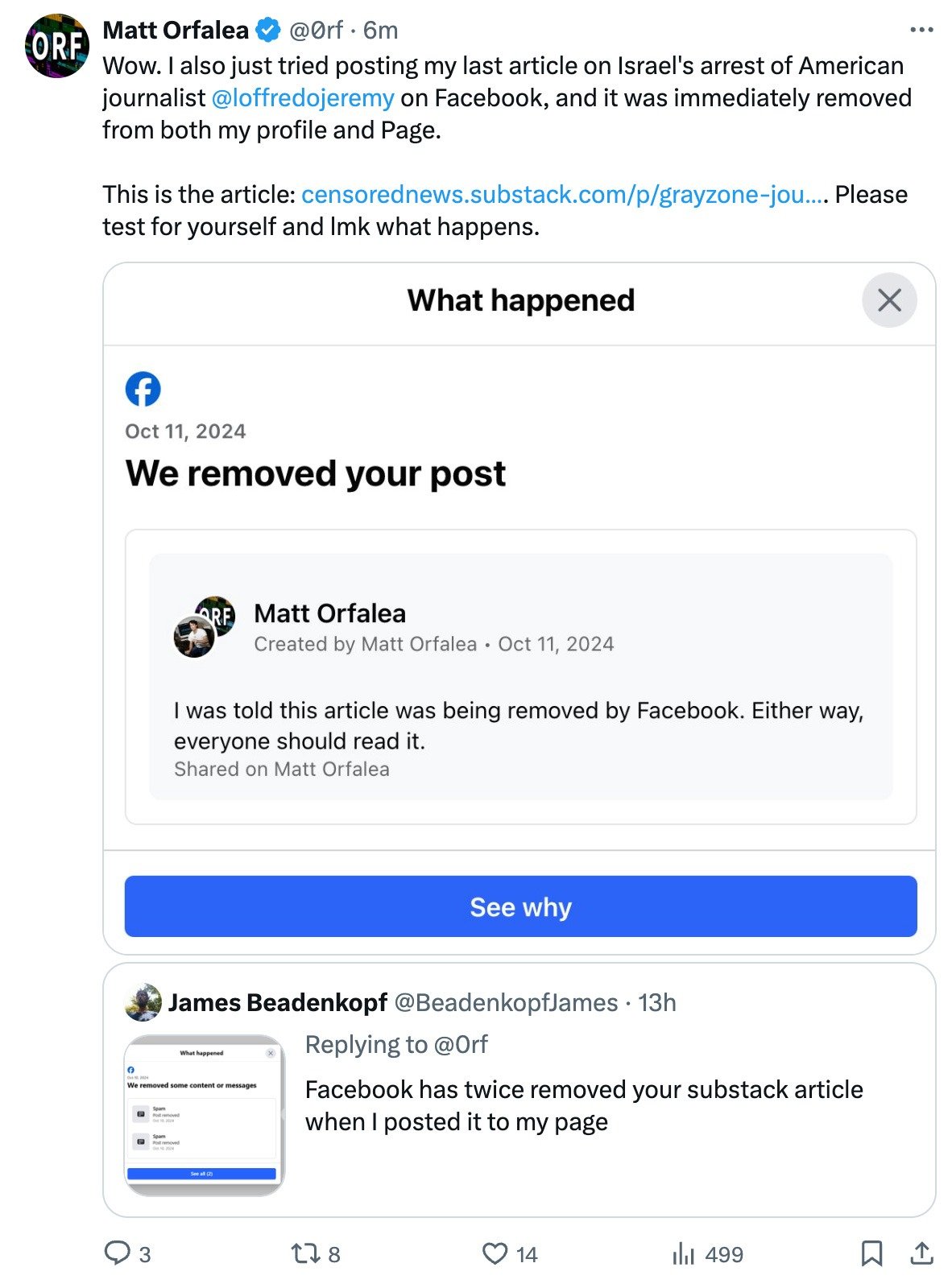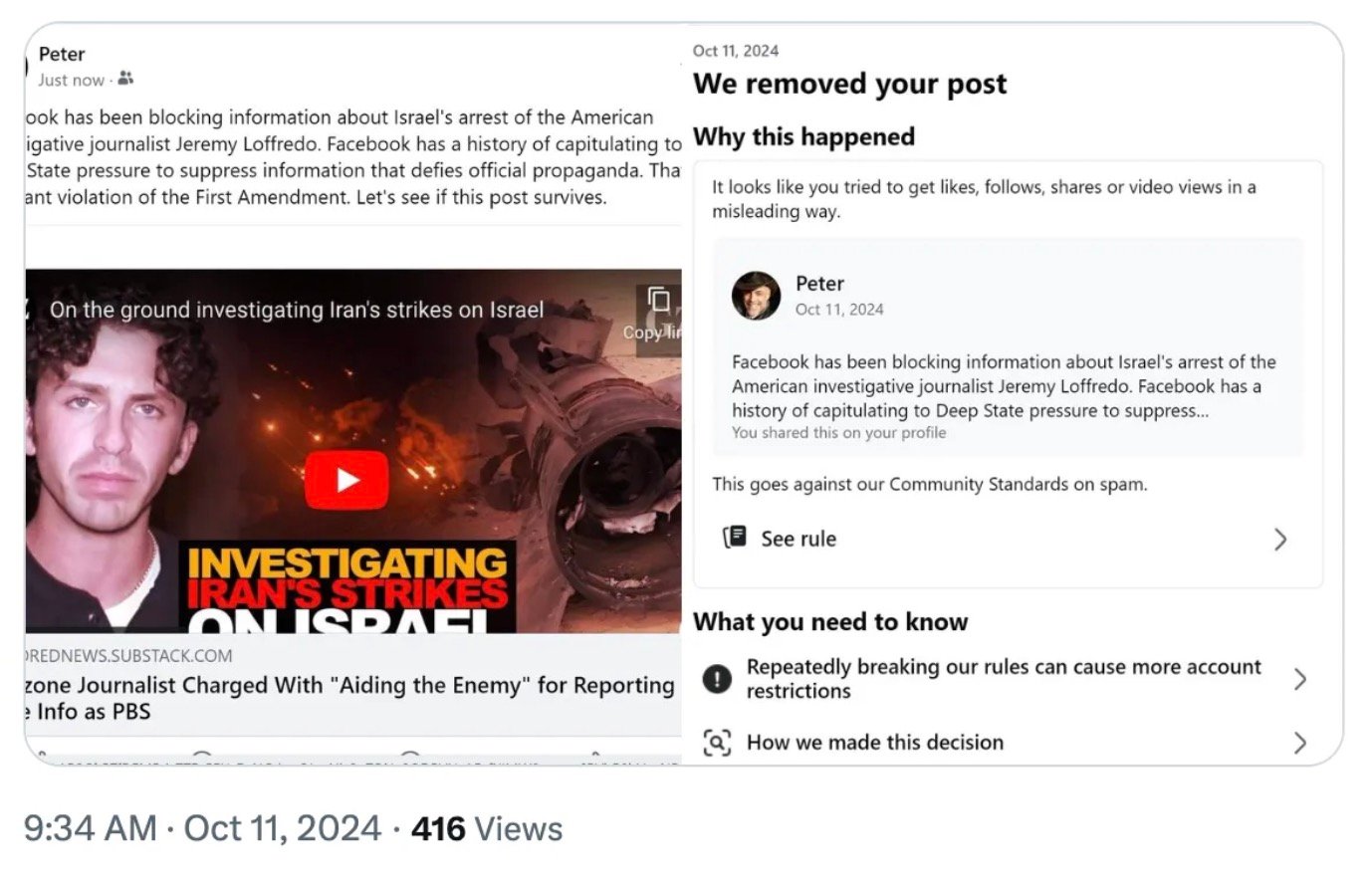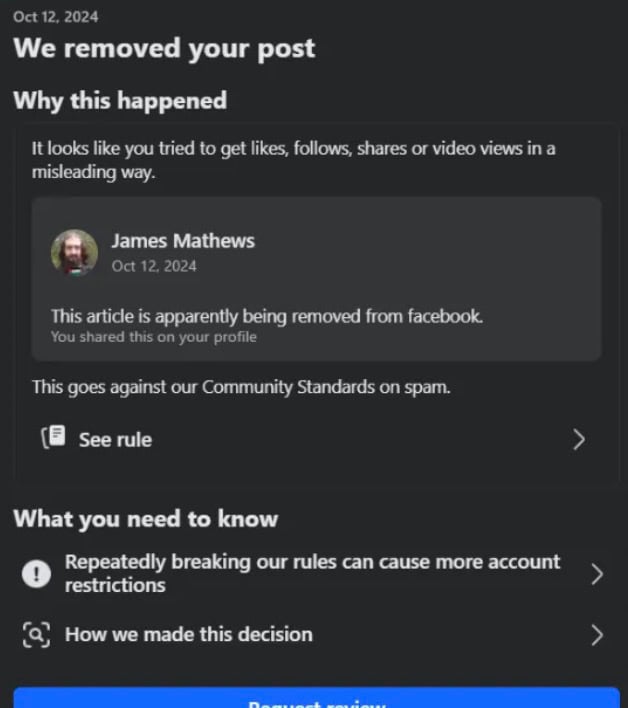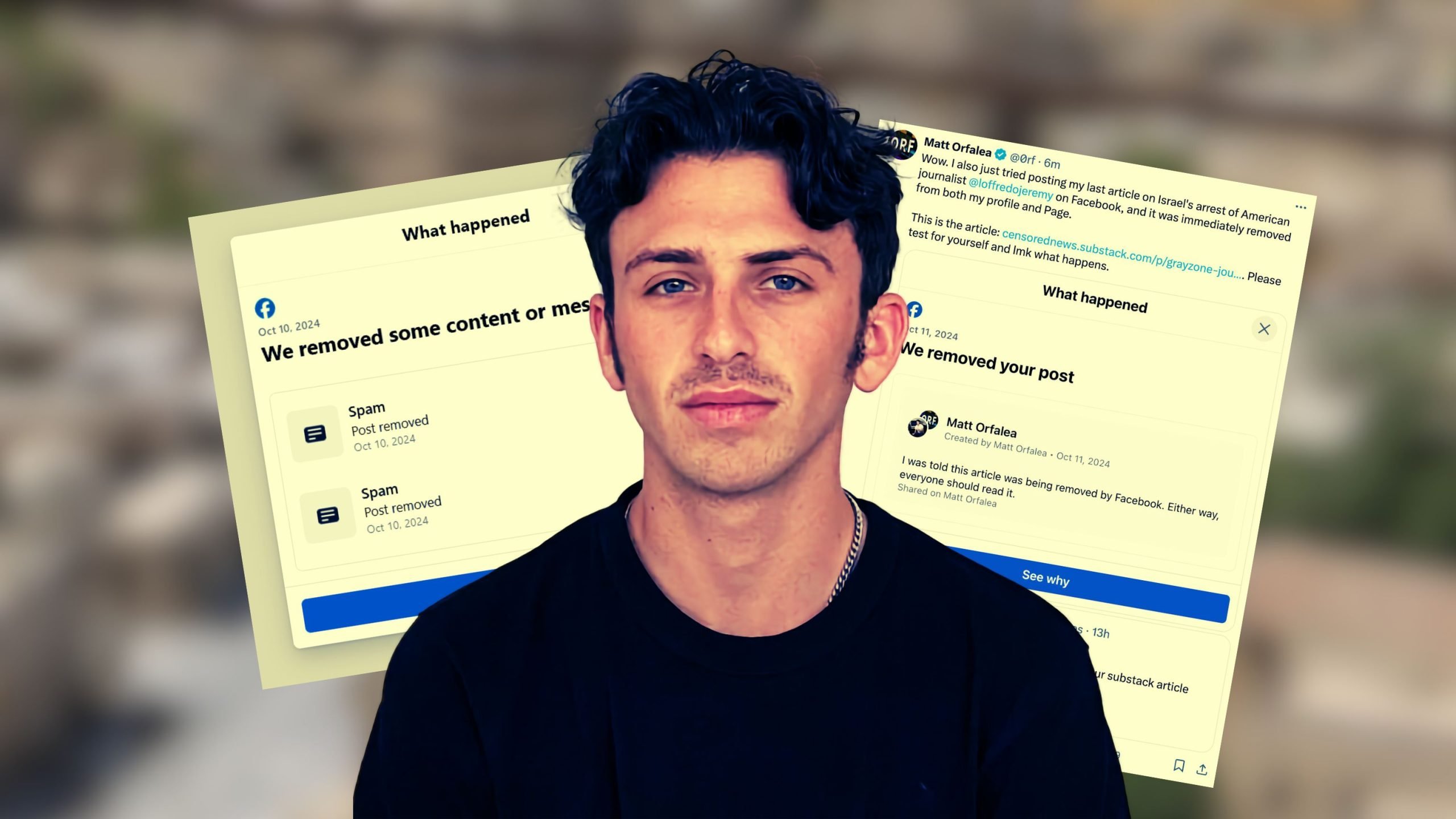Facebook has come under scrutiny for censoring an article by Matt Orfalea that reported on the arrest of American journalist Jeremy Loffredo in Israel. Loffredo was arrested shortly after publishing a detailed investigative report on Iranian missile strikes near significant Israeli military and intelligence locations, including an Israeli Air Force base and Mossad headquarters.

Loffredo has since been released pending an investigation and is not allowed to leave the country.
Orfalea’s article highlighted the circumstances surrounding Loffredo’s arrest and his findings that reportedly contradicted some official Israeli statements about the missile attacks.
According to the Times of Israel, as noted by Orfaela, “The exact locations of such impacts and damage are barred from publication by the IDF censor.”
Facebook’s censorship of Orfalea’s piece raises significant concerns about freedom of the press and the role of social media platforms in moderating content related to sensitive geopolitical issues. Orfalea questioned the transparency and fairness of Facebook’s content moderation processes, especially given the public interest in Loffredo’s arrest and the broader implications for press freedom.
The censorship has not only stifled discussion about Loffredo’s arrest and his report’s contents but also sparked a broader debate on the rights of reporting on matters of significant public concern without interference from state or corporate entities.
Loffredo was released after four days in detainment. The charges against Loffredo suggested he had “assisted” the enemy by revealing sensitive locations hit by Iranian missiles. His work, produced for The Grayzone, was at the center of this accusation. The Grayzone is an outlet that often been accused by mainstream sources of carrying pro-Russian narratives, but the arrest of a US citizen for reporting on topics that authorities have banned raises various free speech concerns.
The situation pivoted when a journalist from YNet testified that the military censor had approved his own article that embedded Loffredo’s video report. This approval was pivotal in Judge Zion Sahrai’s decision to order Loffredo’s release, citing the censor’s prior approval as evidence that Loffredo’s detention could no longer be justified.
Loffredo knew that the were was a ban on the reporting and stated that he pursued the story, “despite the Israeli military censor’s official ban on publishing the locations.” However, according to Orfalea, PBS journalist Nick Schifrin, like Loffredo, reported on the same missile strike from an identical location without repercussions.

Facebook users posted screenshots showing evidence that Facebook was censoring stories on Loffredo’s arrest. According to the screenshots, Facebook removed the stories under its “spam” policy.











